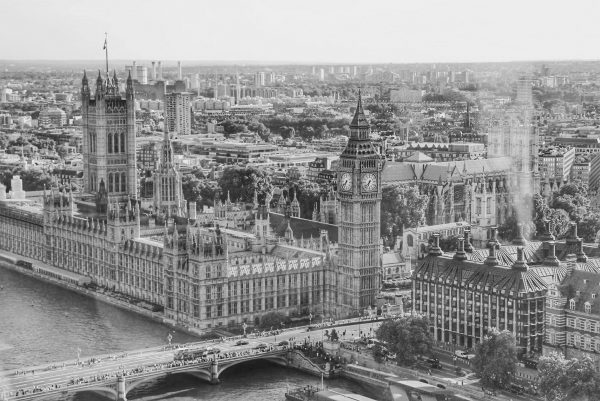The 21st century global economy is characterised by a number of trends, including the growth of cross-border trade in services, among others such as e-commerce. For Britain, focusing on services plays to its strengths as a largely services-based economy. Global trade in services is not as open as manufactured goods, which means that there is scope to liberalise services trade between countries. Capitalising on this gap would help position the UK for the decades to come.
The GATS (General Agreement on Trade in Services) under the World Trade Organisation (WTO) does cover trade in services, but more needs to be done. The 2013 launch of the Trade in Services Agreement (TiSA) by the EU, US, and other economies together representing 70% of global trade in services was intended to further open up the global market for services, helping these countries export what they specialise in.
For example, the economy of the EU is 70% services, but services make up just 25% of its exports. Even if services are partly non-tradable (e.g. consumed locally, such as restaurant services), these nations believed there was scope to increase their sale of services abroad.
This group of countries had hoped that if TiSA became widely adopted, then it could eventually constitute the next round of multilateral liberalisation under the WTO. Instead, it has stalled. However, TiSA underscores how it is possible to negotiate a services free trade agreement (FTA). The challenge in terms of separating manufacturing from services is considerable, since a number of industries sell services as well as physical products. An OECD-WTO study found that over half of the total value-added embodied in the manufactured exports of major economies come from the services sector. But, as a result, a World Bank study concludes that liberalising services trade would facilitate more goods trade.
To become a global trade hub for services means positioning the UK in the midst of overlapping free trade agreements since there isn’t a sufficient multilateral agreement.
Good illustrations of how a global trade hub works are to be found in Mexico and Canada. Both countries benefit from tariff-free sales of a range of goods to the EU, whereas US companies must pay a tariff. That’s because they have free trade agreements with the EU, while the United States does not. That puts them in a privileged position, since they also have a FTA with the US. Another example is Switzerland, which has a FTA with China as well as one with the EU, which places it in an advantageous position.
This also suggests the UK can similarly position itself as a global trade hub for services. Given its long history of internationalism and London’s position as an international financial centre, Britain is well situated to become a trade hub, with all its attendant economic advantages.
To achieve this aim will require taking a number of strategic decisions.
The first is to achieve a Brexit outcome that enables the UK to be a hub or bridge between the EU and other major economies. For that to happen, Britain must be able to do its own trade deals in services. The Brexit agreement with the EU would need to be bespoke since it will mean separating services from the ‘four freedoms’ which also include free movement of goods, capital and workers.
This will be challenging. It’s worth noting that the EU itself has an imperfect single market in services that the UK had been working on further liberalising. For the UK to become a global trade hub, it will require a Brexit deal that doesn’t readily fit into any of the existing models.
The second strategic goal for the UK is to open up the services sector of major economies which do not have FTAs with each other, e.g., the EU and US, EU and China, US and China. There would be an advantage to trading via the UK.
Targeting the opening up of the services sector in major economies would be a bilateral version of what TiSA was trying to achieve. It is a narrower trade agreement, though still challenging because services trade is particularly tied up with regulations and non-tariff measures including standards. Opening up service sectors would require difficult negotiations between countries with different legal and regulatory systems. Nevertheless, the work done on TiSA shows that many advanced economies believed this was a challenge worth pursuing.
Even without services trade being as liberalised as manufacturing, Britain is the world’s second largest exporter of services (second only to the US) and runs a trade surplus in exporting services. Focusing on becoming a global trade hub for services is consistent with the UK’s long-standing position as an international financial centre as well as a nexus for other services such as education, legal, business and other professional services, as well as the creative industries.
All of this means that Brexit Britain has a real opportunity ahead of it, with everything it takes to become a hub for one of the fastest-growing areas of world trade.
Original posted on CapX.








